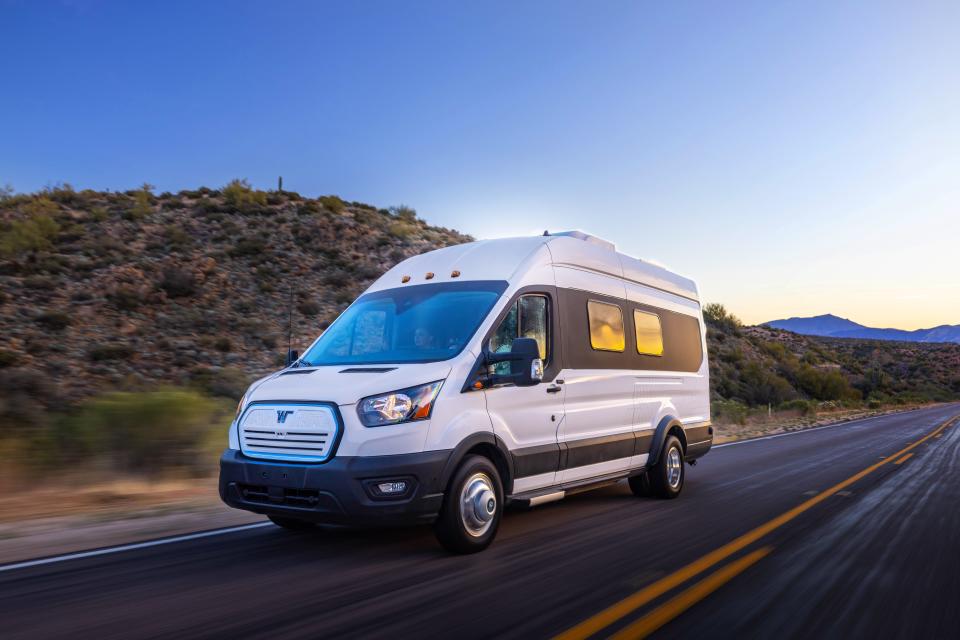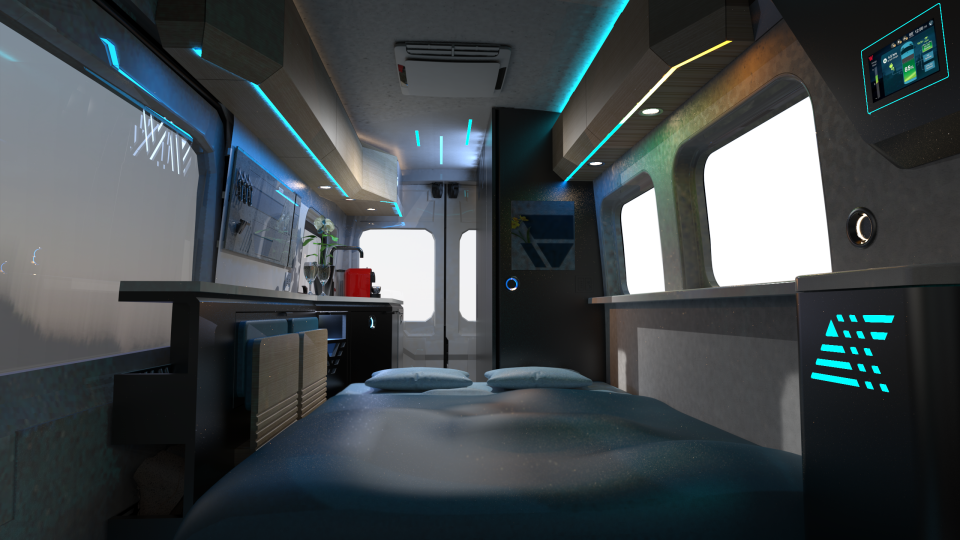Winnebago takes the wraps off new all-electric RV concept
Winnebago Industries gave outdoor enthusiasts a glimpse into the electric future Tuesday.
Executives revealed the company’s first fully electric camper van, dubbed the e-RV, at the RV Super Show in Tampa, Florida, showing off a product that a special company team has worked on for about two years. The company has not revealed when customers can buy the Class B-size van or how much it will cost.
“We really see this as one of the big, defining trends of our time,” Ashis Bhattacharya, Winnebago's senior vice president of business development, said at the unveiling, held in the Florida sunshine far from the company’s factories in north Iowa's Forest City.
In a promotional video streamed on Winnebago’s Facebook page, the company revealed that the van runs on an 86-kilowatt-hour battery. A driver should be able to travel about 125 miles between charges, with a full recharge taking about 45 minutes.
More: Winnebago plans to unveil all-electric motorhome concept at Florida RV show
In addition to the motor, the battery is able to power all the van's features, like the stovetop and the touchscreen control system. Executives boasted Tuesday about how quiet the vehicle is compared to conventional RVs that require generators to run their accessories when not at a campsite with electrical connections. Fossil-fuel-free, the e-RV also does not rely on liquid propane gas tanks for functions like cooking and heating.
More: John Deere introduces Iowa-built driverless tractor, touted as the next revolution in agriculture
The van is the first public product from Winnebago’s Advanced Technology Group, which the company created in 2019. Even though the company has not announced a release date, Bhattacharya said team members have driven the vehicle “thousands” of miles.
“This is very much a concept vehicle,” said Jamie Sorenson, director of the Advanced Technology Group. “And I think the important thing to remember with that is we’re beginning our journey toward electrification of our products.”
Gary Gerard, an editor at the trade publication RVBusiness, said he was impressed with Winnebago’s 15-minute-presentation.
In recent years, Gerard said, other companies have touted electric travel trailers. These use electric motors that give the trailer its own motive boost, extending the range of the electric tow vehicles that pull them.

Winnebago’s van concept also is different from the solar-panel-equipped products that many companies have been pushing — including Winnebago with its new Micro-Minnie FLX trailer, which the company says allows “off-the-grid” camping for up to five days.
“They wanted to get out in front of the public and let everyone know they’re working on something like this,” Gerard said.
Other recreational vehicle manufacturers are taking stabs at all-electric products. German-based WOD introduced a camper van in 2019 that its executives say can cruise 249 miles between charges. And North Carolina-based SylvanSport has vowed to introduce an electric RV with a 400-mile range later this year.
Winnebago itself debuted an electric, 33-foot, Class A coach in 2018, which it designed in collaboration with the electric truck and bus maker Motiv Power Systems. Like the van introduced Tuesday, Winnebago said the coach could run 125 miles between charges.

Spokesperson Kenny Devine said Tuesday that, unlike the van, the coach is not intended for recreational use. Instead, Winnebago sells it to organizations and companies for special uses, such as mobile medical clinics.
Winnebago has seen booming business since the COVID-19 pandemic began. The company’s stock was trading at $72.01 a share as of Tuesday afternoon — up about 18% from where it stood at the end of February 2020, just before the initial wave of infections.
With so many families opting for the self-contained travel and social distance allowed by trailers and RVs, the company has reported net income of $343 million over the last two years. That’s up about 60% compared to the prior two years.
Tyler Jett covers jobs and the economy for the Des Moines Register. Reach him at tjett@registermedia.com, 515-284-8215, or on Twitter at @LetsJett.
This article originally appeared on Des Moines Register: New Winnebago e-RV concept uses no fossil fuels, company says

